ECZEMA FACTS
- Eczema is a condition where parts of the skin become itchy, inflamed, red, and rough.
- Keeping the skin moisturized can prevent certain kinds of eczema.
- It is important to distinguish the different causes of eczema because effective treatments can vary.
- Certain foods could make eczema worse such as dairy, peanuts, wheat, or soy.
- Eczema is not contagious.

WHAT IS ECZEMA?
Eczema is a skin condition that causes the skin to become inflamed, itchy, scaly, red, or irritated.
The word "eczema" is also used specifically to refer to atopic dermatitis, the most common type of eczema, however there are 7 known types of eczema.
The appearance of skin affected by eczema will depend on how much a person scratches it, and whether the skin is infected. Scratching and rubbing further causes irritation on the skin, increases inflammation, and can worsen eczema.
All forms of eczema will itch.
Sometimes the itching happens before the rash appears. Eczema rashes most commonly appear on the face, back of the knees, wrists, hands, or feet but it may also affect other areas as well.

TYPES OF ECZEMA AND ITS SYMPTOMS
Atopic dermatitis
The most common form of eczema. It usually starts when someone is young, and often gets milder or goes away by adult age.
"Atopic" refers to a group of diseases including the immune system. Dermatitis means an inflammation of the skin.
Atopic dermatitis happens when the skin’s natural barrier against irritants and allergens is weakened, so make sure to keep supporting your skin's natural moisture barrier!
Atopic dermatitis (eczema) symtoms:
- Dry skin
- Itching, which may be severe, especially during the night time
- Red to brownish patches, mostly on the hands, feet, ankles, wrists, neck, upper chest, eyelids, inside the bend of the elbows and knees, and in infants, the face and scalp
Atopic dermatitis most often begins before age 5 and may carry on into adulthood. For some, it flares periodically and clears up for a period of time. Atopic dermatitis could remain in remission for several years.
Contact dermatitis
This is a red, itchy rash caused by direct contact with a substance in which the substance irritates and inflames the skin.
There is another type which is allergic contact dermatitis. After repeated contact with the substance, the body’s immune recognition system becomes activated and you become allergic to that substance.
Dyshidrotic Eczema
This is a type of eczema where clear fluid filled blisters develop on the soles of your feet, sides of the fingers or toes and palms of your hands.
The Blisters normally last for about two to four weeks and could be caused by allergies or stress. The blisters are often very itchy. The skin can also scale, crack, and flake from these blisters.
Hand eczema
An inflammation of the skin of the hands that can be caused by contact allergens such as rubber chemicals, but other external factors such as outside irritants can also cause it.
In hand eczema, your hands get red, itchy, and dry and they may form cracks or blisters.
Neurodermatitis
A skin condition that starts with an itchy patch of skin. It is similar to atopic dermatitis. It causes thick, scaly patches to appear on your skin. Scratching makes it even itchier. Scratching the skin could cause the skin to appear leathery and thickened.
Neurodermatitis usually starts in people who have other types of eczema or psoriasis. Stress could also trigger it.
In neurodermatitis, thick, scaly patches form on your arms, legs, back of your neck, scalp, bottoms of your feet, backs of your hands, or genital. These patches can be very itchy, especially when you’re relaxed or asleep.

Stasis dermatitis
Stasis dermatitis is skin inflammation that develops in people with poor blood circulation. It's common on the lower parts of the legs. When blood collects or pools in the veins of the lower legs, the pressure on the veins increases. Legs can swell up and varicose veins can form.
Nummular eczema
This is a type of eczema that causes coin-shaped spots to form on your skin. Nummular eczema looks very different from other types of eczema, and it can itch a lot. These patches are often itchy and well-defined.
Nummular eczema can be triggered by a reaction to an injury, such as a burn, cut, or scrape, or insect bite. Dry skin can also cause it.These can last for several months and the eczema spots could be 1 or many.
It's best to work with a doctor such as a dermatologist or allergist to help find your eczema causes so you can find the appropriate treatments. Avoiding specific triggers or allergens can help to prevent or minimize flare-ups.
Life with eczema can seem intimidating not knowing how the day after today will treat you, but figuring out the triggers goes a long way in managing flare ups and symtoms!
Eczema Triggers:
Triggers for eczema include environmental exposures and allergens.
Common eczema triggers include
- extended exposure to dry air common in winter. any extreme heat or cold
- dust mites which are a common allergen
- Certain ingredients in common household items may also trigger a reaction such as:
- formaldehyde found in some adhesives like glue or bandages
- cocamidopropyl betaine in shampoos or cleansers.
- Fragrance
- Isothiazolinone in some antibacterial wipes
- Pet hair
- A new clothing detergent
- Certain types of fabric rubbing on the skin like wool or polyester.
Figuring out what is triggering your eczema and avoiding contact with them is ultimately the best way to treat your eczema.
If you can't pinpoint your eczema trigger yourself, ask an allergist or dermatologist about a skin patch test in which they will test for several chemicals found in household products to narrow down what exactly is irritating your skin.
Product For Eczema
The fighter gel has ingredients like organic gotu kola, or centella asiatica which are proven to help with eczema due to the anti-inflammatory and skin barrier supporting properties.
Contains MSM - a type of sulfur that reduces inflammation in skin and improves skin quality to fight eczema. This makes the fighter gel a great eczema product.
It also contains peppermint oil which has evidence that it can provide relief for chronic itching which is great for reducing the itching symptom of eczema.
Other Eczema Treatments:
There are some medications which may be effective for eczema, however note that many medications are for temporary use only and contain side effects.
For all eczema treatments, keep skin hydrated with an eczema safe product like a fragrance free moisturizer that that doesn't contain any of your triggers.
Steroid Creams
Steroid creams may be prescribed for eczema because they reduce inflammation and reduce the skin's immune response in the applied area. These creams may only be used for a week or two at a time depending on strength.
Side effects may be worsened acne or rosacea.
Skin thinning may occur when used together with a tight dressing or bandage.
Other Immunosuppresants
Medications such as predisnone or other immune system supressants may be prescribed, however these can have major side effects. If these are prescribed to you, it is most likely because you have a severe case.
Overall, eczema is a very frustrating condition due to the intense itching sensation and the appearance of the rash may be frustrating for some, but with the above tips, you will surely find a way to avoid your eczema triggers and treat your eczema flare ups if they do happen.
References:
Pharmacological Effects of Centella asiatica on Skin Diseases: Evidence and Possible Mechanisms: https://www.hindawi.com/journals/ecam/2021/5462633/
An overview of the different types of eczema: https://nationaleczema.org/eczema/types-of-eczema/
Effectiveness of topical peppermint oil on symptomatic treatment of chronic pruritus: https://www.ncbi.nlm.nih.gov/pmc/articles/PMC5066694/

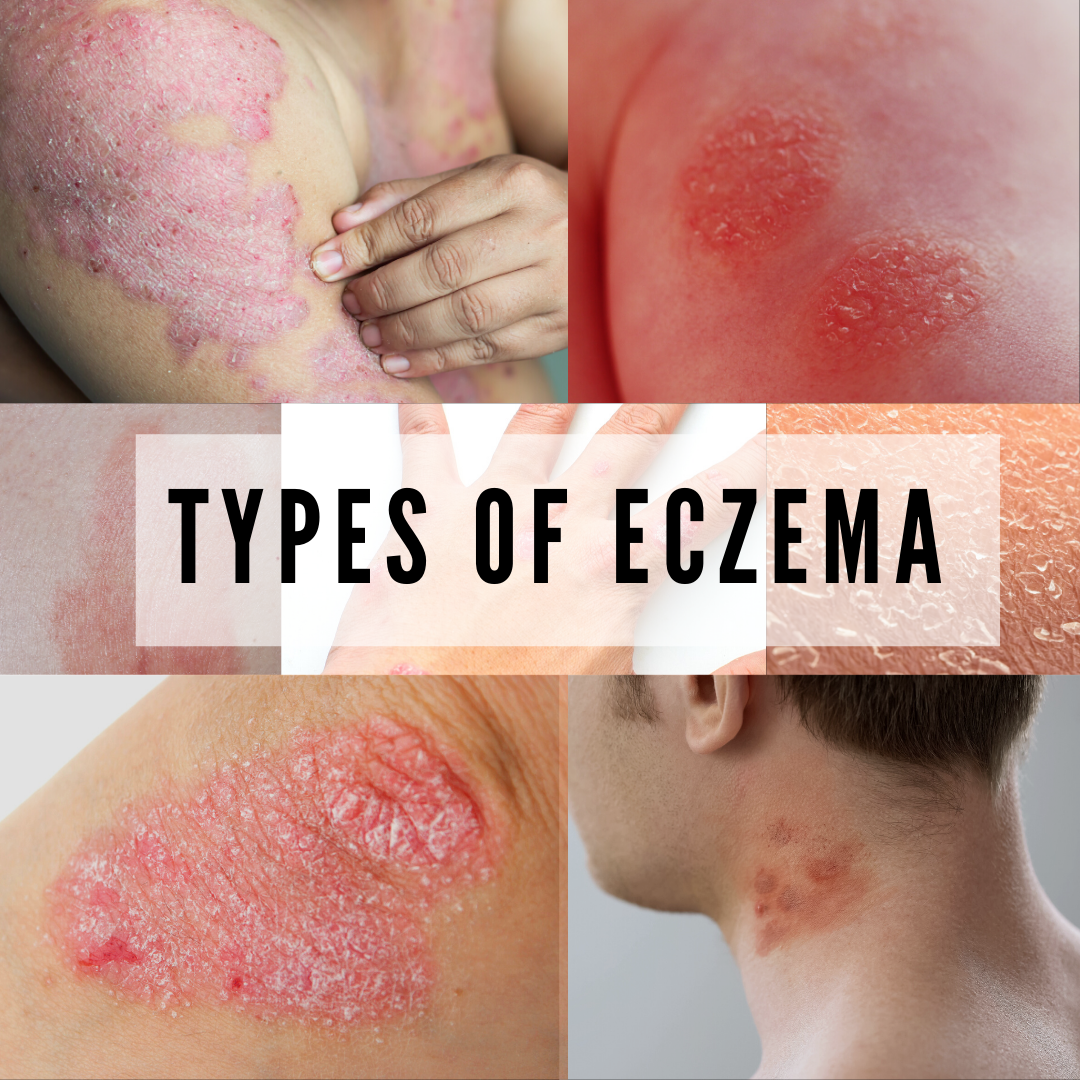


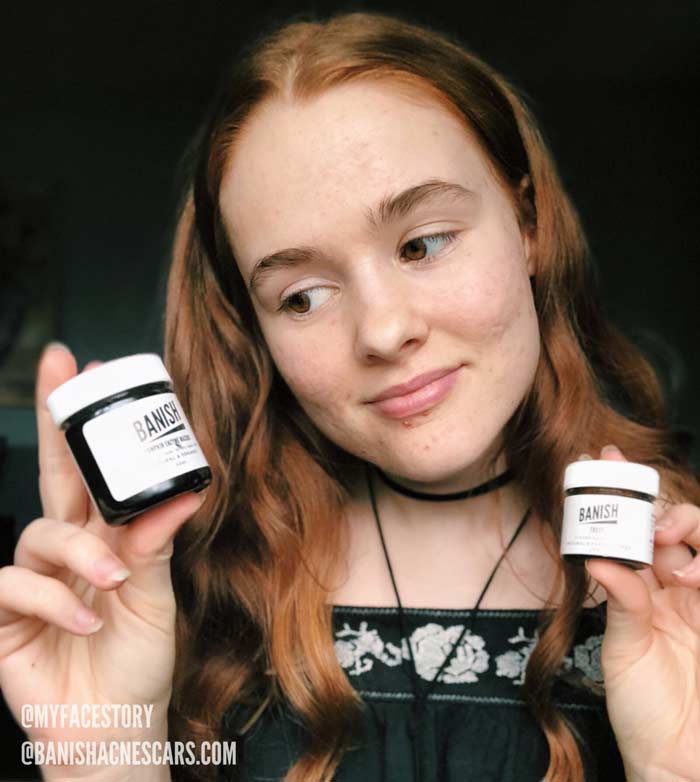
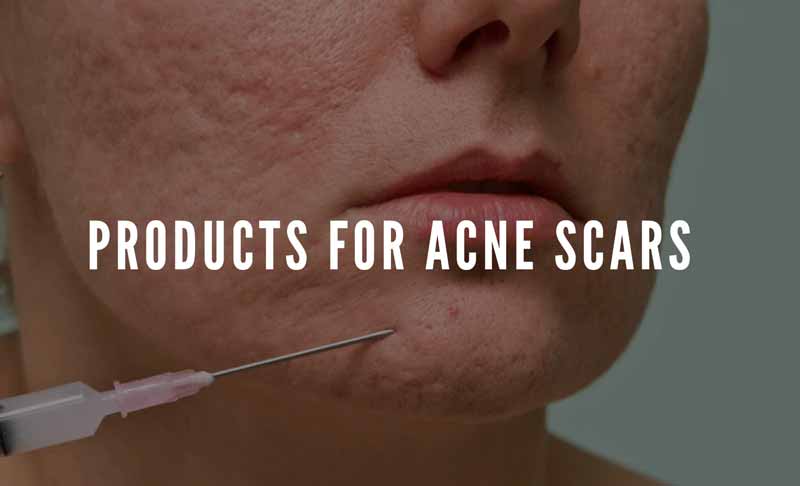










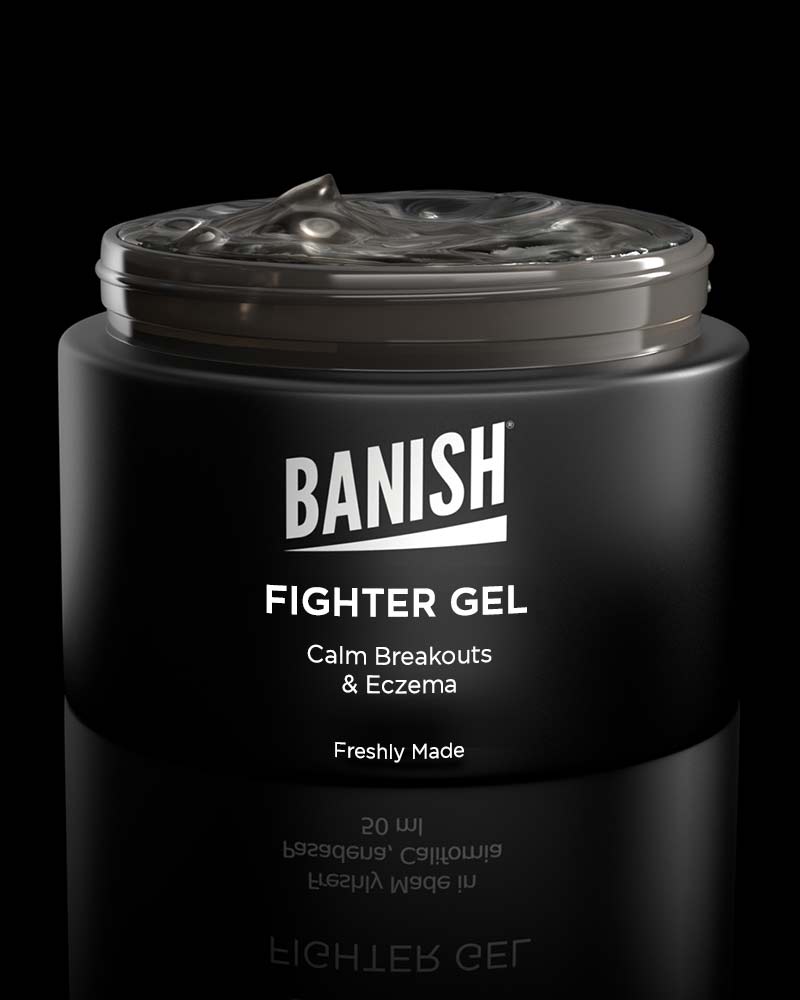
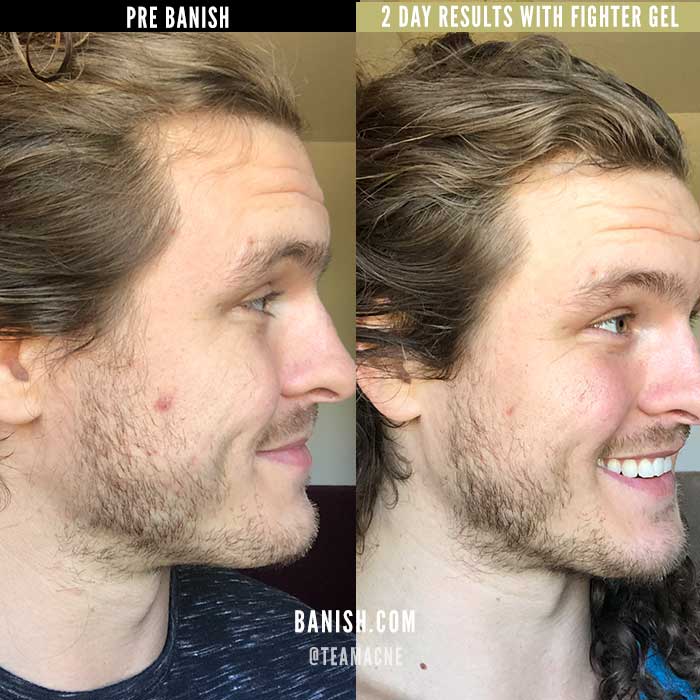










22 comments
Vicki
I am going through my first bout of eczema and I ordered a product called Eczema Honey from the Eczema Honey Company. I’ve only applied it today but I’ve seen noticeable improvement in this one day. I wish all of you the best in getting rid of this uncomfortable rash!
Mike D
I had excema on my arms, legs, and tops of feet. Red patches and scratchy is how it appeared and felt. My dermatologist had me take Luke warm showers at.night, and then put on cream. It was hard to sleep with my skin being still moist from the cream. I ended up taking an oatmeal bath every night, that leaves a barrier on your skin to keep skin moisture in. Then, every morning I would put on excema lotion, over my body. Also, my doctor suggested I take an otc allergy tablet every morning. It.completely cleared up. I now alternate and take a shower every other night, using Dove soothing relief body wash, which contains colloidal oatmeal, to keep my skin hydrated. Mine wasn’t the worst type of excema, but doing this process has taken care of me for the past year, and my doctor told me I’m cured. I don’t intend to quit the process…
Sarah
I wear rubber boots for work and they have been rubbing on my legs causing red spots
Tracy
I’ve had this for probably 15 years and I’m 64. I never had acne, nor anyone in my family. I just had this horrible itching with a dot on my hand. It turned into a blister that turned into a bump with a small dot in the center. It hurt so badly. Next thing I know, I had 35 on both my hands! I went to many drs and nobody knew what it was. Since then I’ve had it come back a few times. This time I have them on my hands and toes and my elbow??? I have had shingles a few times, but it never looked like this.
I met this person who said her mom has the same thing! I was so happy to find out what I can do about this disease.
I wish everyone the best of luck.
God Bless
M
Mary Ellen Higgins
I recommend SkinSmart Facial Cleanser, which is marketed for acne prone skin but also helps to reduce eczema.
Leave a comment
All comments are moderated before being published.
This site is protected by hCaptcha and the hCaptcha Privacy Policy and Terms of Service apply.